Hacking through the alphabet like a Sesame Street character with whooping cough, we’ve now made our way beyond the most essential and influential games whose names start with the letters A-D and E-K. Now, like the beginning of some Super Nintendo cheat code, it’s time for L-R. These are the games that consumed the better part of our childhoods, kept us awake during math class, made us into dating sim snobs, revealed the duplicitous nature of cake, and permanently damaged our ability to say “no” to horrible sequels.
The Legend of Zelda series – Kate Jay
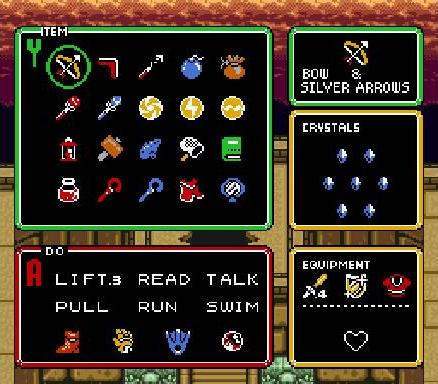
Over the years, The Legend of Zelda has seen some big changes. Graphics have improved (or not, in the case of Wind Waker), stories have gotten more intense (or not, in the case of Skyward Sword), and characters have gotten cooler (or weirder, in the cases of Groose and Tingle). That’s why it’s so heartening to see that throughout its many iterations, Zelda‘s core value remains the same: materialism.
In every game, you start off with limited gear. As you gain more items, you become a cooler, more hip guy who—after collecting all the awesome stuff there is to find—gets the girl. Now, you can go on and on about the stories and the gameplay and the themes of morality and good versus evil, but for Link and the others, it’s all about the swag. How can you start off your career? Get a sword to cut through the competition! How can you make sure you rise to even greater heights? Use the Hookshot! In the Zelda ‘verse, what you have is what you are, if you want to be a hero (and not some wannabe like Tingle).
It’s true that you don’t always get the girl, because there are very few endings where it’s clear that Zelda is anything more than Link’s friend/liege (except for the TV series, which no one will admit to liking but everyone watched religiously every Friday when it was on TV). But who needs the girl when you have a flying duck statue that carries you around the world? Thanks, Zelda, for teaching me that materialism is how I can achieve true happiness and world domination!
Of particular note: The Legend of Zelda (NES) – Jeff Day
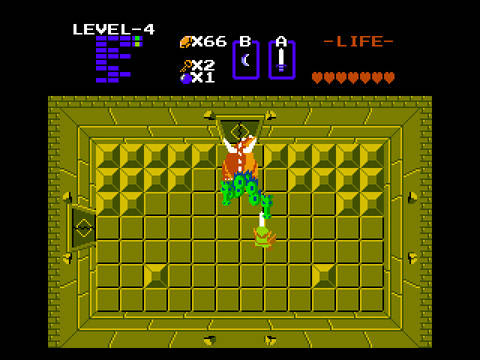
In Super Mario Bros., players move from left to right, jumping on a flagpole and moving on, inch by inch, level by level, to save the Princess in a linear manner. But players wanted—nay—NEEDED more. And thus spoke Zeldathustra: a far more open world lay ahead for the player, via the iconic avatar of the tunic-clad Link. Suddenly, we were placed in a situation where we didn’t know exactly where to go; only by exploration and wielding our impressive sword would we ever find our way—and even then, it would require extensive interpretation skills: every old man in the game won’t tell us anything in a straightforward manner. “SECRET IS IN TIP OF THE NOSE,” eh? Grab a Kleenex and start digging. I remember the first time I played this game. I was very ill, but slaying that dragon at the end of the first dungeon brought some colour back to my pale face. See? The Legend of Zelda: good for adventurers, great for medicinal purposes.
Same game, different take – Jillian Dingwall
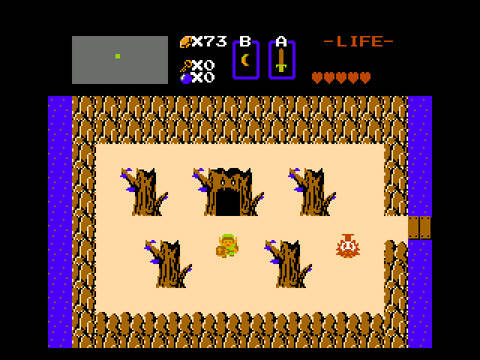
I got this game for Christmas some time in the late ’80s and I remember everything about that moment to this very day. Seeing the gold cartridge for the first time gave me a feeling that has yet to be replicated. It felt like it was made out of real gold. The game itself had a very ethereal and medieval feel to it and I was drawn into that world for months. My mum sat with me for the entire duration, helping me out when I needed it and feeding me when I looked a bit malnourished. The part of the game that stood out the most for me, though, was the final boss. Up until that moment I had persevered with bosses to a point and then tended to give up when the next shiny new game came along, but there was something about this game that made me determined to finish, and it was the single most challenging thing I have ever accomplished. I was mentally exhausted after days of fighting, but then one day, two minutes before my parents were taking us out for dinner, I did it. Everyone was watching and it felt glorious. The Legend of Zelda taught me one thing: Never give up.
Also of particular note: The Legend of Zelda: Link’s Awakening (GB) – Matt Jonas
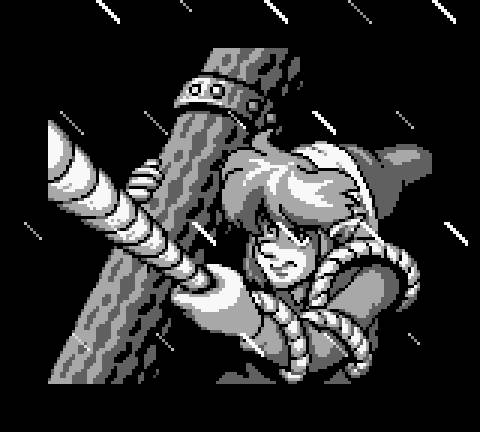
The missing link of the Legend of Zelda franchise, Link’s Awakening finally drops the big question: What if Link actually died on his way back home?
It’s subtle, but the theme is there. The strange dream-world in which Link finds himself situated, the bizarre people that he encounters and the life-size Kirby that tries to eat him are all examples of just how hard he might have really been fried by that lightning bolt that hit his ship.
For me, this was quite an eye-opener in videogames. You could take familiar characters and toss them into worlds where they are uncomfortable, and you really can take any franchise and create dark-themed offspring, and those games can indeed be great.
After it worked so well in Link’s Awakening, Nintendo brought the unease and the darkness back for Majora’s Mask, which I have no doubt somebody else has already talked about, just below me. [Editor’s note: Sorry to disappoint you, but…]
So what next, a really dark Sonic the Hedgehog or Super Mario Bros. game? I hope so, because they would be awesome.
Of course, no list would be complete without: The Legend of Zelda: Ocarina of Time (N64) – Michael Gray
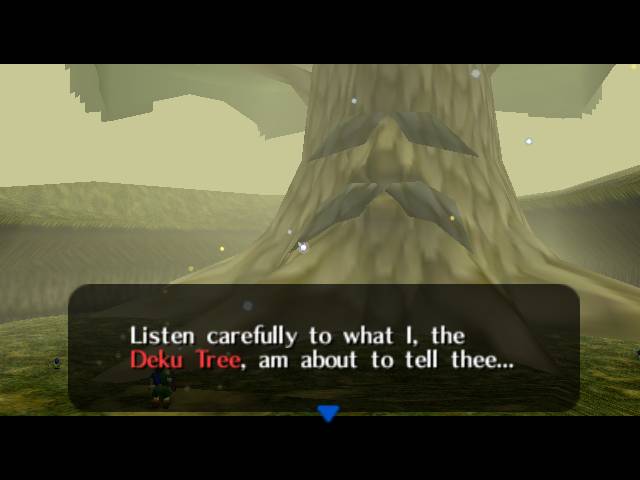
I think the best way to explain how influential The Legend of Zelda: Ocarina of Time is is to point you toward a recent podcast. Rizziman and I talked about this game for an hour, and our discussion didn’t get past the first level. If we didn’t have a time limit, I bet we could have gone on for about six hours, at least.
I haven’t played this game in years, and I can still talk about it for hours on end. Influential? Yeah, pretty much. And seeing as it always appears on Top Ten Videogames of All Time lists, I’m guessing other people feel the same way.
Hey! We like the game so much, we’ll talk about it twice – Daniel Castro
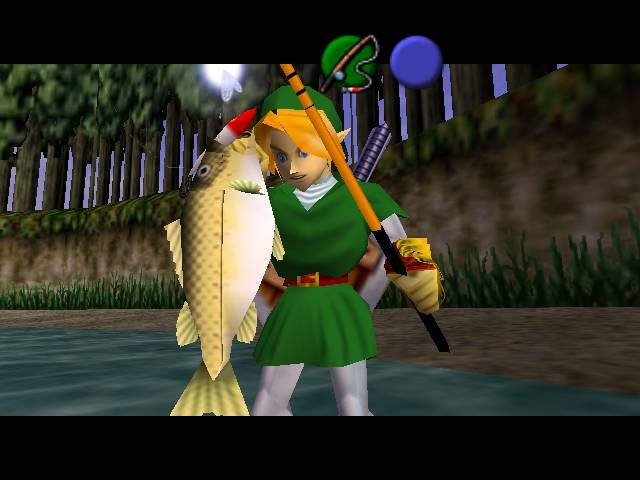
I’m sure as hell that I liked videogames before Ocarina of Time, but nothing was the same for me after I played it. This title achieved everything: great graphics, meaningful characters, a timeless soundtrack, perfect controls, and so much more.
Thing is, the game didn’t just end for me after the credits—I became obsessed with the lore, I got familiar with every inch of the game, I talked the hell out of it with practically everyone (sorry everyone!), and then I got myself involved with the English-to-Spanish translation of the Ocarina of Time manga, and my life changed forever.
From then on, translating became my everyday discipline, and English became second nature. I learned Photoshop, I translated every Zelda-related manga I found, and my work is still well known around the web (under the nickname of Atrox). The fact that I’m writing right now on the Internet I owe big time to my involvement on that project, and it was my fascination with this fantastic story that fueled my conviction to continue this endeavor till the very end.
Now you know which game to blame for having me here.
Lemmings (PC) – Jillian Dingwall
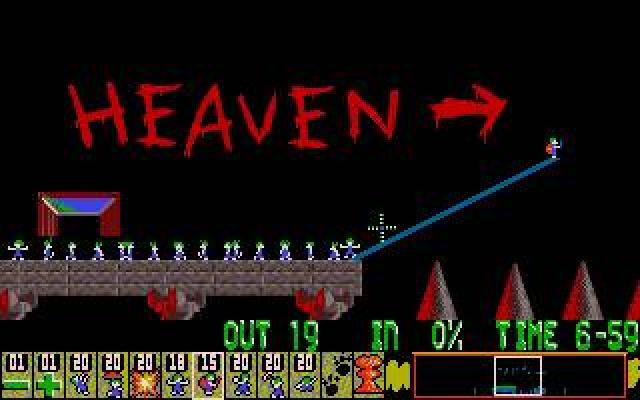
This was the second game I ever played (after Paperboy) and definitely the one that got me hooked on gaming for life. I would sit at my computer for hours on end, swearing like a sailor at those green-haired little bastards, whilst quietly admiring what, at the time, were some mind-blowing and highly original graphics. It has influenced countless modern-day puzzle games, a stand-out example being Samorost, a game that has taken the simplicity of the Lemmings blueprint and turned it into a piece of gaming art. Despite being essentially a primitive version of a point-and-click game, a genre that gets a lot of stick for being superficial, Lemmings has never gotten old. These guys weren’t superficial; they were hardcore! I don’t know anyone who can climb a vertical wall, dig a hole in it, build a set of stairs, parachute off them and then walk calmly into a lake of lava and burn to death. I say: Long live Lemmings and the glorification of suicide.
Mario Kart series – Mark Freedman
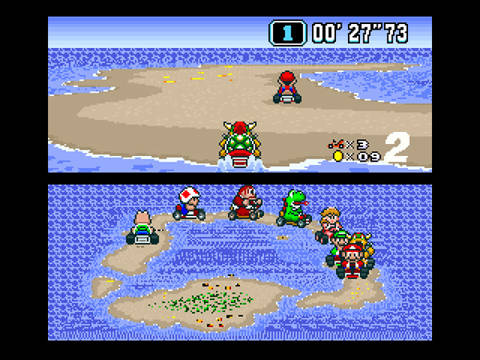
Mario Kart really paved the way for engrossing local multiplayer action on the SNES. Finally, a racing game for the everyman, assuming every man likes throwing banana peels and turtle shells at each other. Mario fans liked it because of the characters, and driving fans liked it for the fierce competition and awesome courses. Whether on the home console, GBA, DS, or online with the Wii, there was a way to go-kart with any generation of game consoles. Personally, I have very fond memories of using the code to make your guy small on the SNES version, and my brother and I would trade off doing protection runs for each other. In the N64 world, Mario Kart 64 was the first four-player multiplayer game that I knew of, and made for a pretty awesome sleepover party. And while it didn’t work out, the LAN-capable Double Dash!! on the ‘Cube was certainly ambitious.
Of particular note: Mario Kart 64 (N64) – Daniel Castro
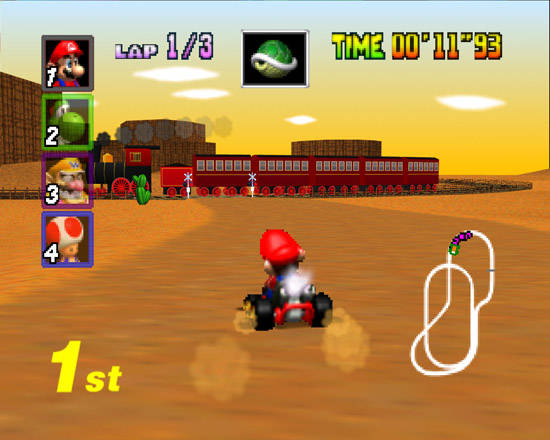
There are two main things I can say about this game: it’s simple and fun, and that’s all it needs in order to draw people’s attention. More specifically, this is the game that started all those after-midnight gaming sessions between my friends and me.
Newer versions of this game have brought some good and bad things to the series, but I remember having the most fun in Mario Kart 64. The tracks felt more inspired, the game was simpler, and I wasn’t being hit by a goddamn blue shell every fucking time!
Also, this is one of the games that taught me not to be that competitive, or I would’ve murdered my friends when they started to snatch first place from me—on my console, no less.
M.C. Kids (NES) – Michael Gray
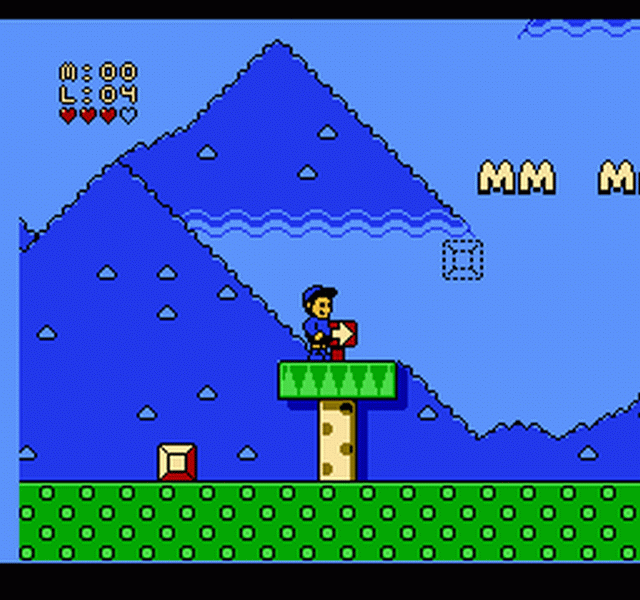
I’ll probably get some guff for this, but I’ve always felt that M.C. Kids is the essential NES platformer. The level designs are just ridiculously creative, and filled with fun things like huge trampolines and challenges where you play upside-down. Every world feels unique, and every level in every world feels unique. Plus, there’s about forty of them. I love it because it’s a long, well-designed NES game. If you can look past the fact that it’s a licensed game, it’s hard not to enjoy it.
Mega Man series – Nathaniel Hoover
Surprise! I get to talk about my all-time favorite videogame series. But it’s more than just that—without Mega Man, I wouldn’t be a gamer. Mega Man 4 was the first game that pushed me to persevere instead of giving up at the first sign of a boss with a lightbulb for a hat, and the dedication it demanded easily converted me into a rabid fanboy and a more skillful gamer. It wasn’t just the tough-but-fair difficulty of the challenges that won me over, but the creativity, variety, replayability, character, and giant hippos that encouraged me to keep trying in the face of repeated failure. Also, my Game Genie code booklet only went up to Mega Man 3, and I’d beaten all the other NES games I owned, so I had to play the game the honest way.
Mega Man 4 was just the beginning. Even as Flip-Top/Eddie was eclipsed by Elpizo, Drill Bomb was replaced by Black Hole Bomb, and Toad Man gave way to Tornado Tonion, I found myself—sometimes cheerfully, sometimes enveloped in a cloud of outrage—following Mega Man, Zero, Vent, Aile, and even that Lan hooligan wherever they went. Now, with about 50 Mega Man games (and counting!) under my belt, I officially qualify as clinically insane I can safely say I’ve found my favorite series I officially qualify as clinically insane.
Mega Man convinced me that 70+ hours of gameplay, stunning FMV cutscenes, full voice acting, online multiplayer, Achievements, and compatible Wii Baby peripherals are ultimately irrelevant without responsive controls and challenges that test your skill more than your patience. Because of Mega Man, I’ve acquired a taste for videogame marathons, become a minor Internet celebrity, and found the inspiration for proposing to my now-wife. And I can spend entire sentences linking to Mega Man articles I’ve written, so that’s terrifying.
Of particular note: Mega Man 3 (NES) – Jeff Day
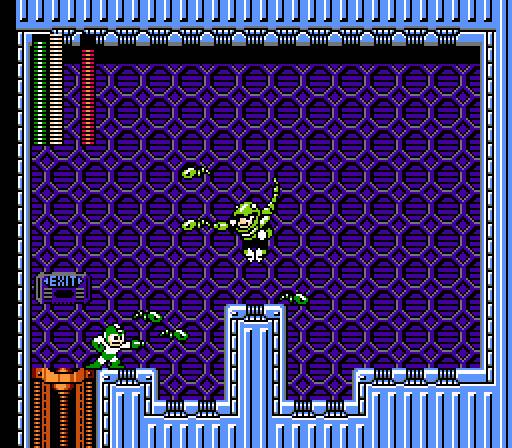
Ask anyone on the GameCola staff which is the best of the original Mega Man series, and I don’t know what answer you’d get because I didn’t research it. I imagine that Mega Man 2 will probably get the most nods, but guess what: the others don’t matter. I matter. And I say Mega Man 3 is the finest of the games. Yes, Mega Man 2 was a significant leap over its predecessor, but Mega Man 3 is the perfection of those new ideas, not to mention a couple of extra features that we now take for granted. Mega Man 3 introduced Rush, the lovable dog sidekick that can transform into a submarine, jet, or springboard on a whim, and Mega Man’s now-trademark sliding ability. And the Robot Masters are even more entertaining. Snake Man, anyone, or the beloved Hard Man? And what about Mega Man’s newfound ability to pull a deadly pirouette, thanks to the Top Spin weapon? You can have your Mega Man 2, GameCola; I want to slide my way to freedom!
[Editor’s note: Mega Man hasn’t been able to slide his way to freedom ever since Mega Man 9. And you’re clearly mistaken about Mega Man 2 being the staff favorite; we all know everyone loves the Mega Man PC game.]
Metal Gear Solid series – Matt Jonas
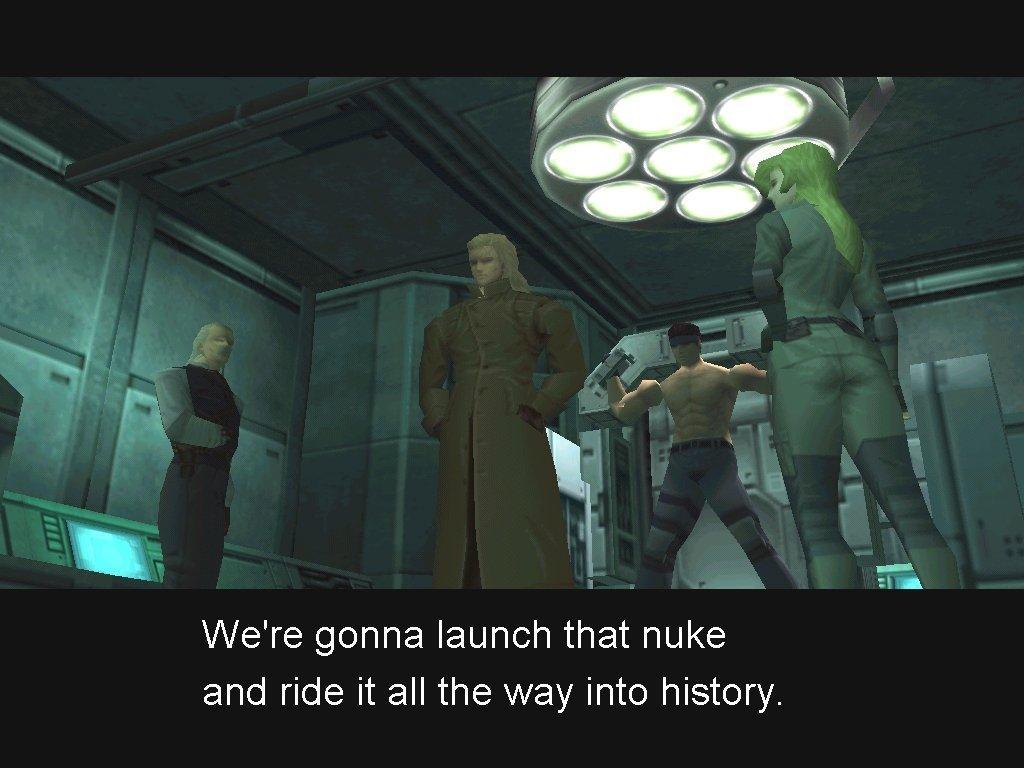
This series is immensely quotable. It has eroded my brain. I find myself finishing other people’s sentences with quotes from these games. They have become part of my very being.
Even though I am not very good at them, and get spotted a lot in them, these games are incredible. I must have completed Metal Gear Solid: The Twin Snakes at least forty times, unlocked everything and still went back for more.
Immensely quotable, ridiculously playable and there’s a dirt-cheap HD collection with an installment you need to play. If you think you want Ground Zeroes, you’ll need to play Peace Walker. Might as well do it in HD, right?
I’ve been playing the Metal Gear Solid series since 1999, and it continues to improve. If you don’t own them all (and the consoles required to play them) then what are you doing with your life?
Mike Tyson’s Punch-Out!! (NES) – Mark Freedman
One of the first Freedman home movies is from my mom video recording me playing Mike Tyson’s Punch-Out!!. I was fighting Great Tiger, the stereotype from South Mumbai. I lost horribly…he was a tough competitor. This was a very influential game for me because I liked the idea of being, quite literally, the little guy. Is it not, after all, the American dream to overcome strife and adversity, and knocking down foreign competitors along the way? I also really liked owning a game endorsed by a real-life athlete…something very rare at the time.
Mortal Kombat Mythologies: Sub-Zero (N64) – Christian Porter
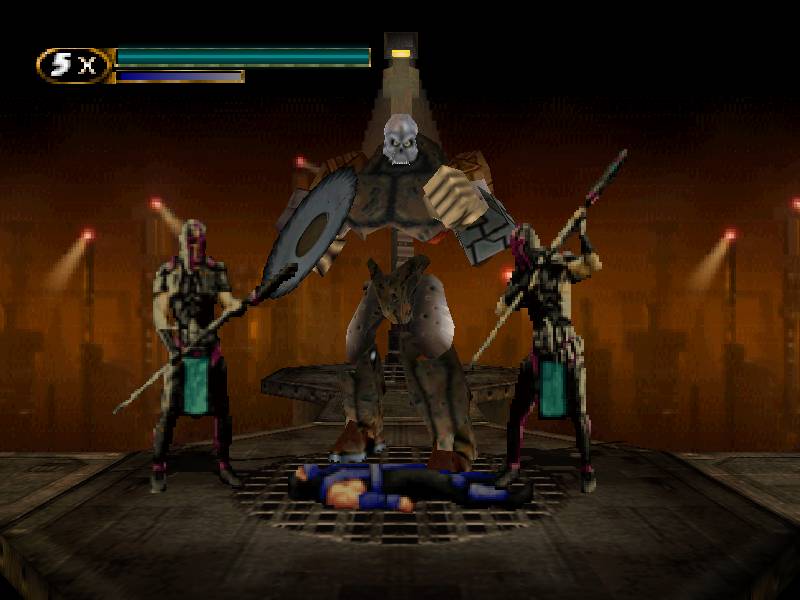
I haven’t played this game again since it first came out. And for good reason: this is the first game to really fill me with long-term rage over how terrible it was. I had hated some games earlier than this, but this is the first one to really stick in my craw. I remember the story was awful, the graphics were awful, the controls were awful, and you seemed to just fight the same guy over and over.
In retrospect, the game doesn’t even look all that terrible; I’ve played worse games since and worse games prior, but this one filled me with a nerd vendetta because it was the first bad one I bought with my own money.
Mystical Ninja Starring Goemon (N64) – Matt Jonas
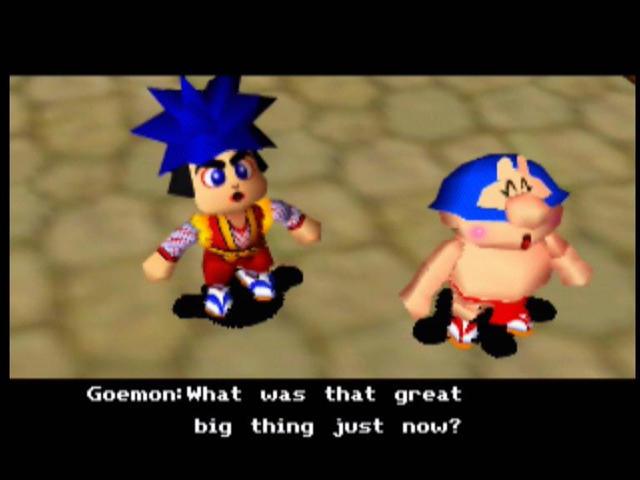
Mystical Ninja Starring Goemon was one of those games I returned to in 2006 after playing it all the time in my childhood. You ever have that thing where you go back to an old game and it isn’t nostalgia you feel? I didn’t feel happy playing Mystical Ninja Starring Goemon; no, I actually felt sad.
It was as though I was being reminded not of the good times, but simply of the fact that I had spent so long without playing the game. Mystical Ninja Starring Goemon is a friend whom I ignored for so long, but was there for me when I returned.
With a soundtrack formed of sheer perfection, with characters that make you laugh, and truly obscure situations…a lot of my thought and direction when designing games and coming up with stories is strongly influenced by this series.
Also, Yae. Actually, forget what I just said; I like it because Yae.
Nancy Drew: The Haunted Carousel (PC) – Michael Gray
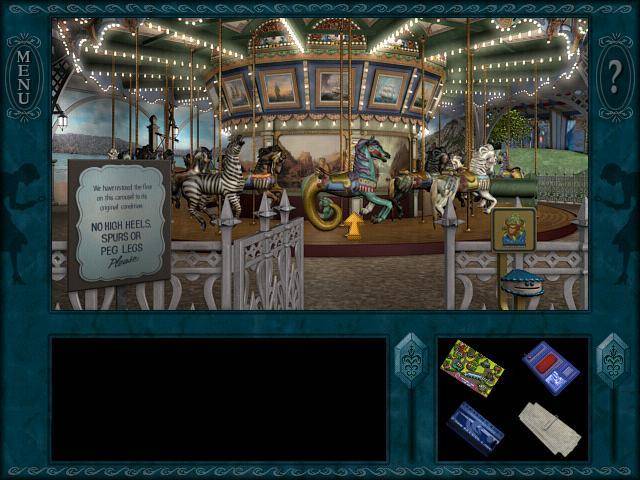
I love the Nancy Drew series to death. Like a giant octopus, it has sucked me into its embrace and I can never escape. This is all due to the first game in the series that I played, which is Nancy Drew: The Haunted Carousel.
It’s an incredibly solid game. It has a great blend of a variety of things: fun carousel games, creepy ghost hauntings, and humorous talking robots. In addition, Carousel is very tightly designed, in that all the locations and things you see come together to form a coherent plot, with no red herrings or time-wasting challenges. I’d recommend it to everyone, except people who are deathly afraid of giant octopi.
Nier (X360) – Matt Jonas
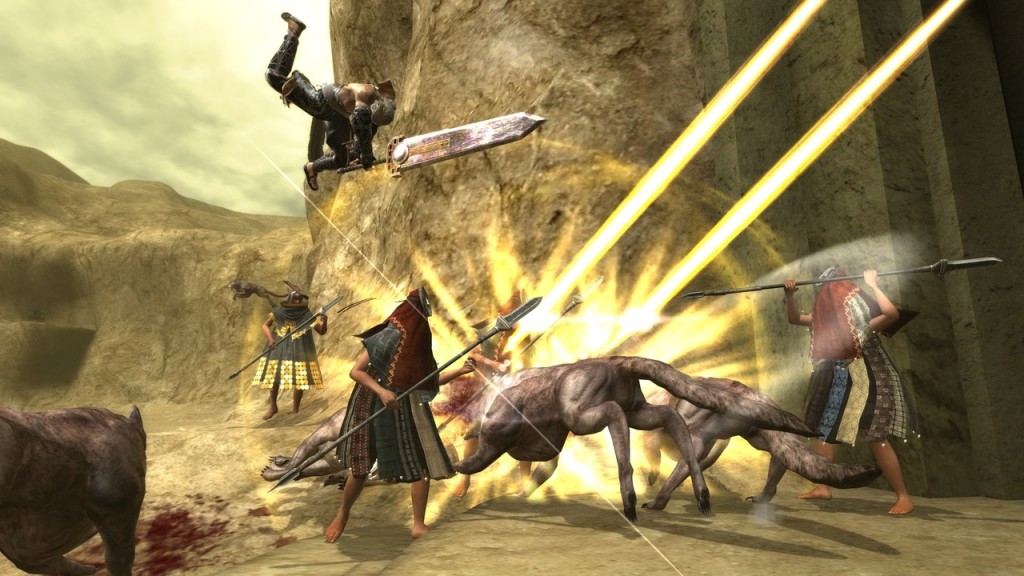
I’ve said it before: Nier is the best RPG ever made. It has the deepest story, so perfectly formed and told wiser than any book could ever achieve. It has scope and breadth; it tackles very difficult themes. The soundtrack does interesting things and the game is littered with strange but wonderful motifs.
For me, Nier was a wake-up call. Just like Ape Escape 3, Nier introduced me to something I was missing. I was missing a soul in my games. Everything I played was another game after game from the same stale franchises, plowed for Achievements and then tossed aside like a pair of soiled underwear.
Nier gave me a strong story that shook me to my core, and left me considering my complete worthlessness in the grand scale of things. The demise of all life—a threatening thought if those 2012 predictions are true, but one that I’m ready for thanks to Nier.
Thank you to the stork who brought me here, for dropping me into a world where videogames exist. But thank you especially for dropping me into a world where Nier exists.
Number Magic (TI-99) – Christian Porter
This one is, as mentioned a while back, the first videogame I ever played. That is, if you can really call doing math problems while a crudely rendered bunny hops around a videogame. At the time, the novelty of pressing buttons on a real-life keyboard and making things happen on this portal to a magical digital world in front of me was more important than the game being good. Eventually I played better games, but it was all because Number Magic turned me on to them. Come to think of it, in some way, I could blame Number Magic for the fact that I’ve played Bratz Ponyz 2. Up yours, Number Magic.
Oregon Trail (PC) – Kate Jay
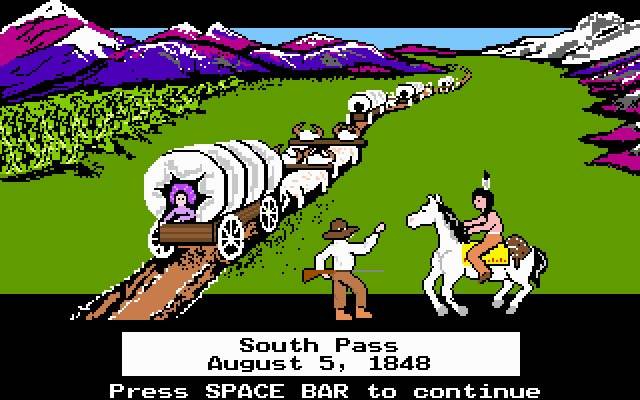
History was never one of my strongest subjects. Facts and figures just don’t stick, and don’t even get me started on trying to remember names. However, one lesson of American history stood out distinctly in my pliant 10-year-old mind: when on the Oregon Trail, almost everyone died of dysentery.
Now, I never learned what, precisely, dysentery is until much later down the road, but I knew that many of the people who made the journey west didn’t actually get that far because they had such limited choices when faced with difficult decisions. This was probably due to the fact that only bankers went west, since they were the only ones capable of buying all the cool swag and supplies for their journey (medical kit excluded). Oh, there were occasional snakebites and drownings and broken limbs, of course, but for the most part, everyone got dysentery, which was pretty much a one-way ticket to getting buried on the lonesome prairie. And it was lonesome, because by the time my wagon parties moved through an area, there was no game left to shoot.
Kids today have games like Red Dead Redemption, Gun, and FrontierVille to tell them what it was really like living out West. But for us old-school gamers, we know that you can caulk your wagon, float it, or attempt a ford, but in the end, it doesn’t matter because everyone’s going to die of dysentery.
Pac-Man (NES) – Mark Freedman
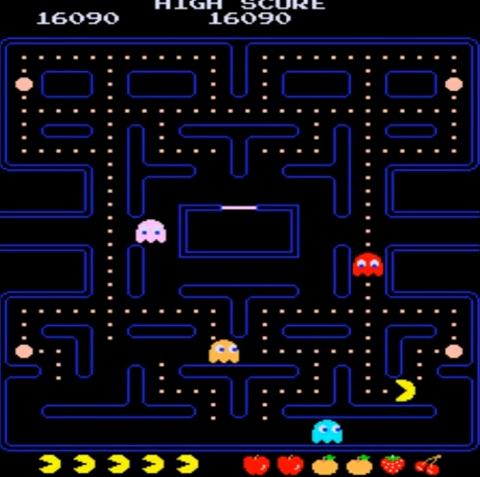
Pac-Man was one of the first arcade games that wasn’t about killing invaders from space, shooting Western outlaws, or other such things. In this title, you’re this hungry, circular man who must eat everything in sight without getting caught. Finally, a game that Americans can get behind. Of particular note, I remember playing this at my buddy’s house on the NES. It wasn’t a licensed title and it came in this strange black cartridge. I remember hooking up the ol’ Game Genie to this bad boy and it didn’t quite work out. The NES door flap ended up snapping off and my friend was furious! It was at that moment that I realized that school, friends, and family were really just obstacles in the way of Nintendo.
Phoenix Wright: Ace Attorney: Justice for All (DS) – Michael Gray
Phoenix Wright: Justice For All was my introduction to the influential Phoenix Wright series. You’ve probably heard of it. It’s all we ever talk about on GameCola, in-between weddings.
Phoenix Wright is a great visual novel series, starring a spiky-haired lawyer who performs murder investigations. It’s well-written, funny, and the music’s not half bad, either. I’d recommend starting with the second game, Justice For All, because the tutorial case for the first game is pretty much awful; the tutorial case for the second game is a much better introduction to the series.
Pokémon series – Daniel Castro
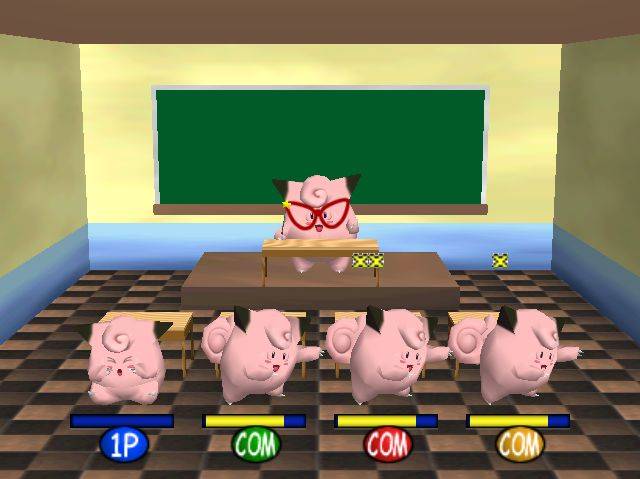
Talking about games that became an obsession, this sucker stole a big chunk of my life by the end of my high school years. This series has everything I would totally fall for: strategy, diversity, and my eternal fascination with animals and weird creatures.
I didn’t know anyone else who was into the game who I could trade/battle Pokémon with, so Pokémon Stadium was a godsend for me to try the different teams I created in both my Blue and Gold versions of the game.
But this obsession came to an end after the release of Pokémon Ruby/Sapphire and its incompatibility with my older versions of the game. I mean, Nintendo filled me up with this message about friendship and loyalty, and then they told me that I had to move on and buy myself new friends. I simply refused to follow this series any longer—and good thing I did, or I might still be trapped in the endless cycle of new releases and new “discovered” Pokémon species.
Putt-Putt Travels Through Time (PC) – Michael Gray
If you can only play one 1990s adventure game before you die, make sure that it’s Putt-Putt Travels Through Time. This is, hands down, the pinnacle of 1990s adventure gaming.
I mean, compare it to the other series at the time. Some adventure series had off-color humor as their main selling point (Leisure Suit Larry, Simon the Sorcerer), while others boasted incredibly difficult and convoluted puzzle solutions (Monkey Island, Space Quest). Putt-Putt takes things in a different direction, with wholesome humor, puzzles that actually make sense, and talking cars that time-travel. Clearly, Putt-Putt Travels Through Time is the best of the bunch.
Pikmin (GC) – Michael Ridgaway
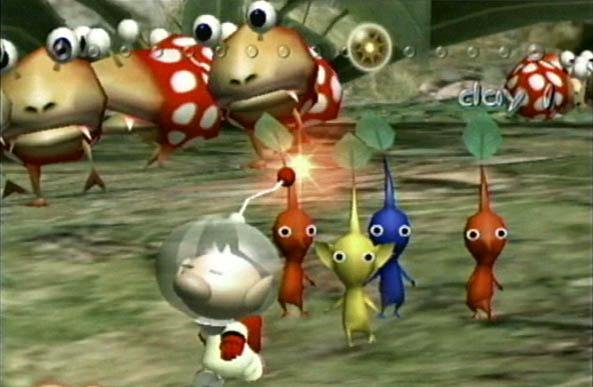
I went through a time in my early twenties when I was tired of Nintendo and all of its cutesy games. I wanted REAL stories, gritty characters, weird gameplay, etc. At the time, I was living at home and had one of the Blockbuster passes where you paid for a month and could rent and return games as you pleased for that period. I had just graduated from college and was looking for a job at the time, and as such, I had a lot of time on my hands that I filled with chewing through Blockbuster’s entire inventory. Eventually I made my way through most of their stock, until only the dregs were left, including—at least in my mind—Pikmin. I had been avoiding it since it seemed so bright and cutesy, but boredom trumped haughtiness and I took it home. And you know what? That game was so ridiculously fun I completely relapsed back into a Nintendo fanboy. Pikmin, maybe more than any other game, showed me that a game doesn’t always need to be dark or feature soaring emotional heights to be fun. It helped me to stop caring about what other people would think of the games I play and just enjoy them.
Portal (PC) – Kate Jay
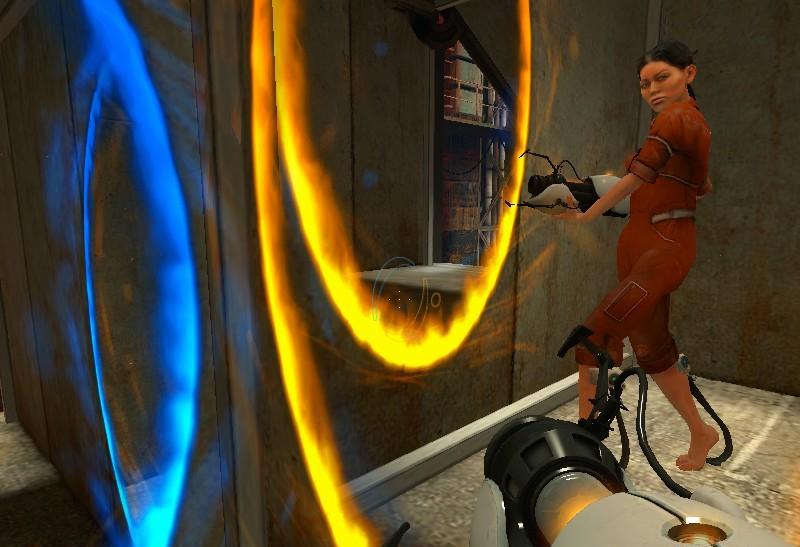
Portal is not your typical JRPG. While Chell fits nicely into the silent hero role, she wears a bit too much to be considered scantily clad (and has a serious lack of buckles). She also fails to save the world, focusing quite selfishly on herself throughout the entire game. Her continued refusal to speak to GLaDOS shows her to be a spiteful, unfeeling character who brushes off the AI’s multiple offerings of friendship. Chell even gave up cake and a party with her friends, placing her more in the role of a villain than any heroine I’ve ever played.
People will try to argue a case for Chell, such as her fleeing GLaDOS is actually an attempt to flee from a lifelong imprisonment in a facility that will stop at nothing to learn in the name of Science. Gamers will tell you that GLaDOS is clearly malfunctioning, and that her hilarious diatribes about what a terrible person you are is what makes the game so fantastic. That the puzzles and the unique portal system add an innovative layer to the gameplay. Poppycock, I tell you! The game clearly lacks a strong male figure to whom the heroine can desperately cling. In fact, the only romanceable character in the game is an object called the Companion Cube, and you have to kill it a few minutes after you’ve met it. There wasn’t any romance in the sequel, either, which clearly marks this game as severely lacking and unappealing to any female gamers like myself.
Anyway, I guess Portal is a pretty amazing puzzle game with fabulous commentary, intriguing gameplay, and a whole lot of fun. However, it’s a terrible JRPG.
Raiders of the Lost Ark (A26) – Nathaniel Hoover
Ah, yes. The Atari 2600. The system that arguably played the biggest role in shaping my gaming expectations. Like Heroes of Might and Magic III, Raiders of the Lost Ark is but the representative of a host of games that deserve a spot on this list. Raiders in particular was the first game to demand critical thinking, creative solutions, and advance planning from me, challenging me to approach gaming as more than just an exercise in quick reflexes. Raiders also provided plenty of bonding time with my father; together, we learned that even in the early ’80s, adventure game puzzle solutions made absolutely no sense.
Rambo (NES) – Christian Porter
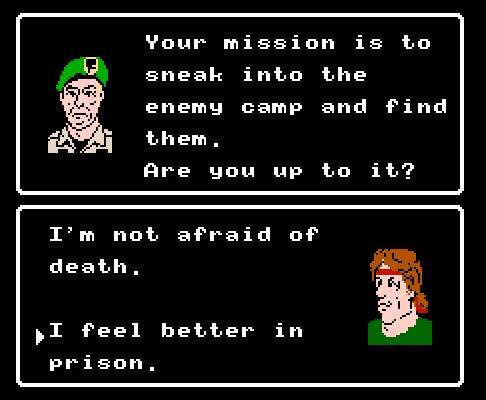
It may not be the best NES game I’ve ever played, but it was the first, and it was several orders of magnitude better than all the Atari 2600 games I had played up to that point. It opened my eyes to the potential games had for storytelling, gameplay, and graphics. Sure, Rambo didn’t push the envelope on any of those fronts, but compared to Atari’s “move the squares to the other squares and then shoot a square at the square” games, it really didn’t take much to amaze me.
River City Ransom (NES) – Alex Jedraszczak

If you’ve read any of my other writings, you’ll know that I’m a fan of RPGs. If you read my bit on Crystalis earlier, you’ll know that I’m a fan of non-turn-based RPGs. However, while action-based RPGs like Crystalis, Secret of Mana, or Legend of Zelda have had a genre of their own since times immemorial, other “Games with RPG Elements” have been more difficult to come by.
Enter: River City Ransom. In an era when RPG elements were relatively exclusive to turn-based battles and high fantasy or sci-fi stories, there was a game coming through to break all the rules. The hipster of the videogame world, River City Ransom had RPG elements before it was cool.
I used to play this game constantly with my brother, somehow never realizing how short the game really is. There’s a ridiculous amount of depth in terms of items and equipment, given that you can easily plow through the game in half an hour. My brother and I would always take the time to get all of our stats up to 99, buy all of the special moves, and try to save up enough to get everything at Merlin’s Mystery Shop even though our stats were already maxed so it was pointless anyway. Besides, everyone knows you can skip everything and just go for Grand Slam.
… But, I digress. RPG elements in a decidedly non-traditional-RPG game? Fun gameplay, including multiplayer? What does this game think it is—Borderlands? Truthfully, it’s hard to say how much influence the game had on the industry, as similar games didn’t become popular until long after its release. Personally, however, it was always a vision of the future. Or, I guess, the recent past at this point. Time can be pretty confusing like that.
I do believe that brings us to the end of the alphabet! Thanks everybody; you’ve been a great crowd. Don’t forget to tip your—wait; what!? We still have S-Z to review? FINE. But the joke’s on you if we all cover Yo! Noid.

I know I’m in the complete minority on this but, dagnabbit, and purely on a conceptual level, I really dug Mortal Kombat Mythologies: Sub-Zero. I liked that they wanted to further flesh out the character and, since they let the cat out of the bag in Mortal Kombat Deception that the original Sub-Zero would become everybody’s favorite shadow wraith Noob Saibot, it’s neat to go back and reanalyze the dialogue in MKMSZ (SHINNOK: “Rejected or sent, you couldn’t exist here unless your soul contained the…. impurities of evil”). As Mortal Kombat 4 was being developed in tandem with MKM, certain elements appeared in both games (Wind God Fujin, Shinnok (whose name was originally invoked in Noob Saibot’s ending in MK Trilogy), the Prison of Souls, the Shaolin Temple (both of which became Kombat Zones in MK4)) and that was kinda cool. At the end of the day, I felt the only major crimes committed were A) the controls, while serviceable, weren’t exactly what I would call fantastic, B) the AI becomes miserably difficult in the later levels, and C) defeating the final form of Shinnok requires either a password that grants you a full inventory of Urns of Vitality or you have to hoard them as you progress through the game and pray you make it to Shinnok.
But hey! The outtakes feature Richard Divizio (Quan Chi), in his Quan Chi makeup and costume, doing impersonations of both Robert De Niro and Jack Nicholson. And I still chuckle when he says, “We have toyed with the ninja long enough!” and “We… you and I…”.
…Alright, I’m done wearing the nostalgia goggles… what were we talking about again?
The complete lack of games that start with punctuation in this list is begining to apall me. Where are the games that start with ;? What about *? Or, most obviously, ,?
The nerve of you GameCola-ee-ers. Not recognizing the values that punctuation has brought to the gaming industry.
Well, what would you consider your most influential game?
I think I know: http://www.gamefaqs.com/pc/978203-period
Or this one was mostly about colons: http://gamecola.net/2011/04/nsfw-water-closet-the-forbidden-chamber-pc/
Oh dear god.
I don’t know whether to be resentful towards your suggestion that this game represents punctuation in any way…
Or to be completely disgusted by the notion that this game’s existance is even aknowledged.
Hurrrp, I think I know which one I’m going with. You win this round, GameCola, but mark my words, I shall return, utilisting the power of Antiemetic Medicines!
Love the list, folks. The S-Z is mentioned at the bottom of the article, but doesn’t actually link to it like the others.
Fixed!